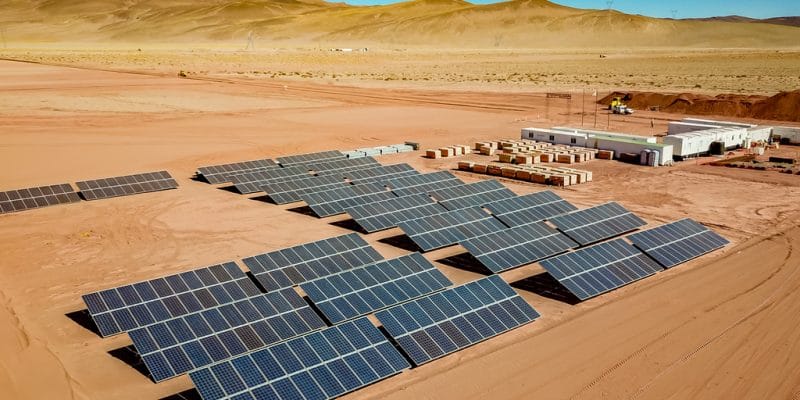The hybrid solar/diesel power plant in Agadez will be built by a consortium consisting of the French company Vergnet and the Indian companies Sterling and Wilson and SNS Solar Power Engineering & Technology. The plant will have a capacity of 19 MW.
The construction of the hybrid power plant in Agadez is getting closer. The Nigerien authorities have just appointed three companies to implement this project in the centre of the country. They are the French company Vergnet, the Indian companies Sterling and Wilson and SNS Solar Power Engineering & Technology.
The project is crucial for Agadez, a city located at the gateway to the Sahara Desert and isolated from the rest of the country. The plant will consist of solar panels linked together by inverters capable of producing 13 MWp. The plant will also consist of diesel generators with a capacity of 6 MW. The hybrid plant will be connected to the electricity grid of the city of Agadez.
Vergnet, Sterling and Wilson and SNS will also operate and maintain the plant for a period of 2 years. The project also includes the rehabilitation of the electrical network of the city of Agadez “whose current state does not allow the evacuation of electricity to and within the city, as well as the electrification of the neighbouring hamlet of Tibinitene”.
AFD and European Union financing
The consortium is also expected to provide project management assistance and institutional support to accompany and train engineers and technicians from the electricity company Niger of (Nigelec) in photovoltaic technologies to enable them to operate large-scale solar power plants in the short term. It is expected that this part of the project will be carried out by SNS, which is a centre of excellence specialising in capacity building for professionals in the renewable energy and energy management sector.
“The construction of the Agadez hybrid power plant will make it possible to meet the electricity demand that is largely unsatisfied today and will reduce the carbon content of electricity in the northern zone,” explains the French Development Agency (AFD). The institution is financing the project to the tune of 16 million euros. The European Union is also investing 16 million euros. The management of these funds has been delegated to AFD.
Jean Marie Takouleu






